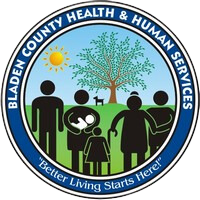September 28, 2021

Bladen County of North Carolina had been identified by the NC Department of Commerce as among the most economically distressed counties in the State (Tier 1). In 2021, the population of Bladen County was 32,722 individuals. Additionally, the rate of uninsured individuals in this county was higher at 21.7% compared to the rest of the state, which was 15.5%. It had been observed that 35.0% of the population was enrolled in Medicaid. Furthermore, the county had been identified by HRSA as a medically underserved area suffering from a severe shortage of primary care, mental health, and dental providers.
This case study was done through a coordinated partnership with the University of North Carolina-Wilmington Center for Healthy Communities, with support from the Kate B. Reynolds Charitable Trust and the Blue Cross and Blue Shield of North Carolina Foundation.
Background
Significant program changes, like that of Medicaid Transformation and the transition to managed care, are challenging at the best of times for any healthcare provider; however, it is a whole other ball game when those systemic changes happen during a global public health emergency – the COVID pandemic.
This challenge was confronting the Bladen County Health Department (Health Department). The Health Department serves as an essential public health provider to a community of nearly 40,000 residents in southeastern North Carolina – an area identified by the federal government as experiencing a severe shortage of medical providers.
Health Department leadership led and organized Bladen County’s response to the public health crisis while negotiating complex contracts with Medicaid Prepaid Health Plans (“PHPs”) and establishing the operational foundations for a sustainable future under managed care.
Mission
Understanding the scale and impact of Medicaid Transformation, the leaders of Bladen County, from the Health Director, County Attorney, and County Manager to the County Commissioners, took an intentional approach to the contract negotiation process and, amid competing demands on time and resources, committed themselves to:
- Truly understand the contracts presented by each of the PHPs;
- Evaluate the local health department’s current operations and capabilities and develop a plan for expanding and enhancing services; and
- Negotiate mutually beneficial terms that ensure the Health Department can continue providing invaluable care to its community.
To this end, Bladen leadership engaged Atrómitos to negotiate provider and care management program contracts with the five (5) Prepaid Health Plans (PHP). Their directive was to ensure that these contracts created a reciprocal sustainable relationship that would allow Bladen to grow its clinical services and community outreach while reducing administrative burden.
Goals
To do this, Bladen’s leadership and Atrómitos had to confront three primary challenges:
- First, PHPs do not have a lot of experience contracting and working with local health departments, particularly in the manner anticipated by NC DHHS’s delivery model.
- Similarly, the Health Department had no prior experience contracting with Medicaid PHPs. This included a lack of experience in the administrative operations associated with managing five separate contracts and the requisite reporting and claims processes.
- Finally, while the PHPs had developed a template contract for health departments (and were reluctant to deviate from that template), there is great diversity across North Carolina’s 100 health departments. Therefore, Bladen needed to ensure that the contract aligned with their current services and enabled them to offer future services and operations.
The Health Department has provided care management services to at-risk children and pregnant mothers for 20 years. It was deeply concerned that some PHPs would move to bring those care management services in-house in the coming years. To avoid potentially arbitrary clawbacks of delegated services, clarity regarding contracted roles and establishing objective (measurable) criteria for contract performance was essential. None of the contracts provided this.
Furthermore, four of the five contracts allowed the PHP to expand the contract to include additional service lines and products outside the Standard Medicaid Plan. This would have significantly reduced the Health Department’s ability to negotiate future contracts (including rates) specific to target populations, potentially foregoing additional (needed) revenue. Finally, in some instances, the PHP contracts did not include defined rates; instead, the contract referenced rates as required by the North Carolina Department of Health and Human Services (“Department”).
This would allow the PHP to reduce rates unilaterally without terminating the agreement or re-negotiating in good faith in case of a program change or removal of oversight by the Department. This evasion removed the predictability and (intended) security that the Department built into its contracts with the PHPs to benefit local health departments.
Approach
Atrómitos evaluated all contracts and created an operational crosswalk for Bladen’s leadership. Through this process, Atrómitos translated long and complex contract terms into plain English and provided context as to how these terms would play out in “real life” – and how they could impact Bladen’s future growth strategy.
The Atrómitos team worked through each crosswalk with Bladen’s Health Director and leadership team, including the County Attorney, who provided crucial insight into county government legal requirements, such as the need to exclude contract terms that required arbitration.
Through Atrómitos’ facilitated discussions, Bladen identified those areas of the contracts that would need to be changed to be reciprocal, sustainable, and reflective of DHHS’s provider-led model. Atrómitos provided redline edits to each contract, informed by our experience with similar contract terms and industry standards. We then narrowed in on the priority issues (“must-haves”) and established a negotiation strategy. Those issues were:
- Establishing objective performance measures tied to DHHS’s stated goals allowed for flexibility as the program (and DHHS’s requirements) developed.
- Ensuring fair (and fully defined) payment for direct health care services and care management.
- Requiring a clear description of contract services and delineation between the responsibilities of the Health Department and those of the PHP. The bottom line is that services and contract requirements are defined upfront and not unilaterally subject to modification by the PHP.
- Limiting the Contract to the Medicaid Standard Plan.
Conclusion
Atrómitos successfully negotiated contracts with all five PHPs, addressing these points and other issues prioritized by Health Department leadership. As a result, Bladen came out of the process with a more profound understanding of what was required of them from PHPs under Managed Care, what they would be able to (feasibly) accomplish during Transformation, and how they would achieve that.
Even more importantly, they had contracts that accurately reflected the shared understanding between the Health Department and each PHP and put in writing the assurances and representations made by the PHPs related to performance standards and corrective action processes to address contract performance issues, including quality management.


